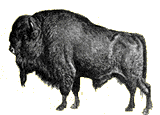 |
HIS 4104- Historical Epistemology CRN 81180 |
![]()
 |
|
![]()
 |
HIS 4104- Historical Epistemology CRN 81180 |
![]()
 |
|
![]()
Readings:
|
History in Crisis |
Pages 75-109 |
|
After the Fact, "Madness of John Brown" |
Pages 122-147 |
|
After the Fact, "Invisible Pioneers" |
Pages 95-121 |
|
After the Fact, "From Rosie to Lucy" |
Pages 303-328 |
Written assignment:
1. From the reading "The Madness of John Brown": One historian recently took the handwriting of William Walker, a 19th century filibusterer, and subjected it to handwriting analysis by an expert. He then took the results to a psychoanalyst. After obtaining the results from both, he wrote a biography of the man. Based on the reading, what problems, if any, do you see in the writing of this type of history? (Be sure to look at History in Crisis as you answer this question.) How would you evaluate a book utilizing this method for its validity (without throwing out the entire book if that is your first reaction).
2. From the reading "Invisible Pioneers": If you were to write an ecological history of Southwest Florida, what factors would you consider that are NOT evident by a physical examination of the area today? What would you look for among those areas you identified?
3. From the reading "From Rosie to Lucy": Answer the author's question, "What effect does the mass media have on real life"? In other words, in this context, what effects does it have on historical perceptions? Is this comparative history? Why or why not?
4. Explain your understanding of the new intellectual history. Do you see this as a part of the postmodernist school? Why or why not?
Copyright (c) 1999 by Jacquelyn Briggs
Kent and Florida Gulf Coast University
![]()